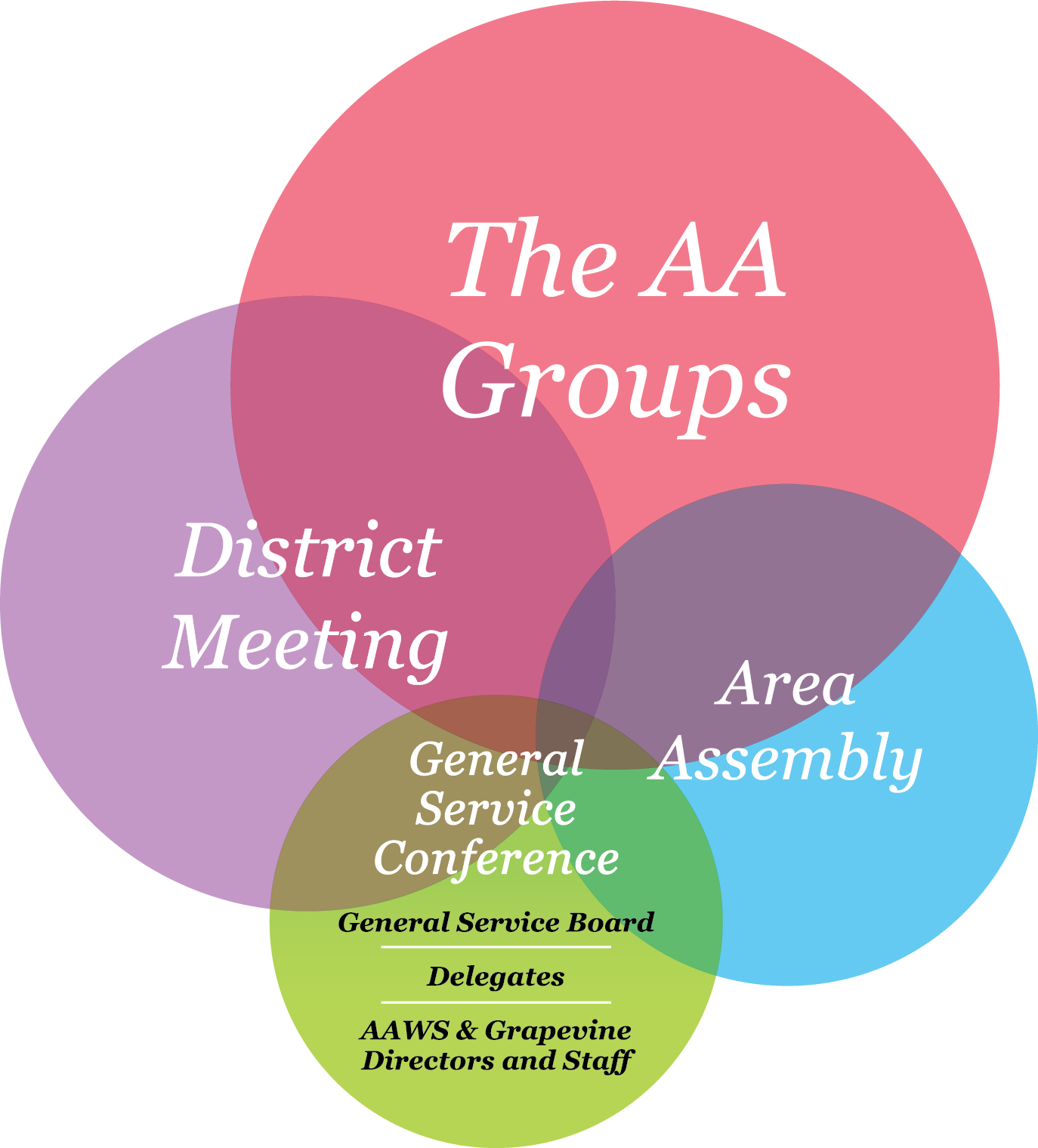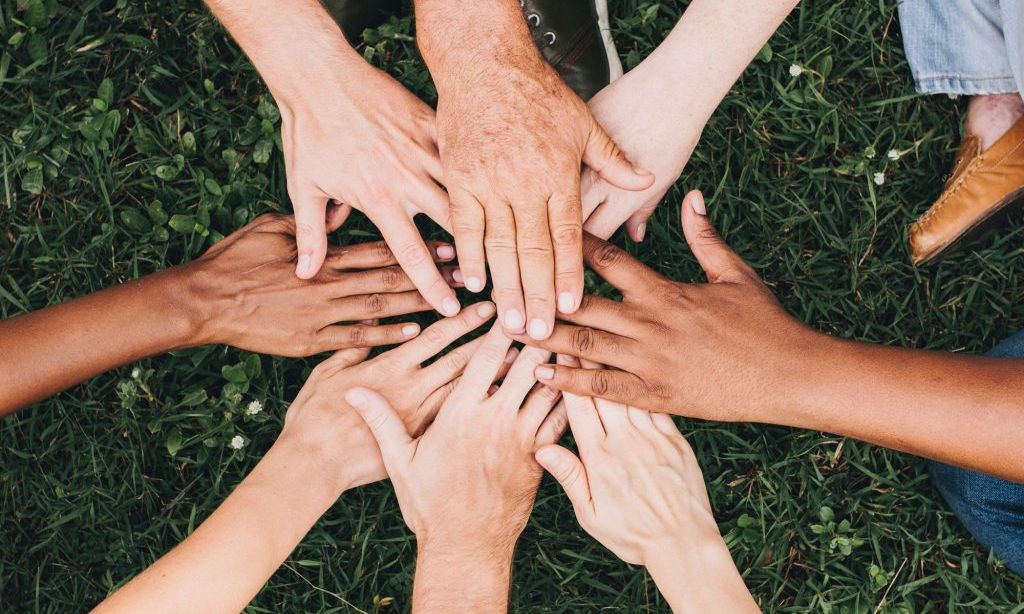
A.A.’s Legacy of Service
“Our Twelfth Step — carrying the message — is the basic service that the A.A. Fellowship provides; this is our principal aim and the main reason for our existence. Therefore, A.A. is more than a set of principles; it is a society for alcoholics in action. We must carry the message, else we ourselves can wither and those who haven’t been given the truth may die.
Hence, an A.A. service is anything whatever that helps us reach a fellow sufferer—ranging all the way from the Twelfth Step itself to a ten-cent phone call and a cup of coffee, and to A.A.’s General Service Office for national and international action. The sum total of all these services is our Third Legacy of Service.
Services include meeting places, hospital cooperation, and intergroup offices; they mean pamphlets, books, and good publicity of almost every description. They call for committees, delegates, trustees, and conferences. And not to be forgotten, they need voluntary contributions from within the Fellowship.” – The AA Service Manual

Most A.A. members participate by going to meetings at their local groups. But there are many opportunities for service in A.A., and most of us have found that volunteering to do service improves the quality of our recovery. We freely share our time and talent in an effort to stay sober and carry the message of Alcoholics Anonymous to those who are suffering from alcoholism. In other words, you get what you give.
Service and the A.A. member
In A.A., everything starts with the group — it is the basic building block of the entire Fellowship and the place where recovery begins for most alcoholics. But, for a group to keep going, all kinds of service must be done. It is through the combined efforts and ongoing commitment of group members that:
• A meeting place is readily available and maintained.
• Programs are arranged for the benefit of the alcoholics in attendance.
• Calls for help are answered.
• Voluntary contributions are collected to keep the group and the Fellowship going financially.
• Literature is provided for all members and lists of local group meetings are made available.
• Continuing contact is sustained with the rest of A.A.

General Service Representatives (G.S.R.s)
In order to stay connected, groups often elect a general service representative (G.S.R.) to represent it within the wider A.A. service structure. As a community is made up of all of its members, each group is part of a larger whole, and its G.S.R. usually participates along with the G.S.R.s of other local groups in monthly district meetings. G.S.R.s keep group members informed about general service activities and opportunities in their local areas.
Please click here to download the G.S.R. Kit.
For more information, please click here for the A.A. Service Manual.

District Committee Member (D.C.M.s)
Each district has a leader of the district committee of G.S.R.s called the district committee member (D.C.M.) Thanks to the participation of the G.S.R.s, the D.C.M is exposed to the group conscience of that district.
These D.C.M.s are essential links between the group G.S.R.s and the area delegate to the General Service Conference. D.C.M.s pass on their district’s thinking to area committees and service workers. They carry information back to local G.S.R.s, who in turn keep their group members informed on various A.A. issues
Please click here to download the D.C.M. Kit.
For more information, please click here for the A.A. Service Manual.

Service Committees
A.A. service committees work to ensure the A.A. message reaches people who may need it. Many alcoholics first hear A.A.’s message of hope thanks to the work of the volunteers on these committees.
Volunteer Opportunities
The SHARE Program – Volunteer Form
Contact us here for 12 step information or additional service.
Copyright © 2022 by Alcoholics Anonymous World Services, Inc. All rights reserved